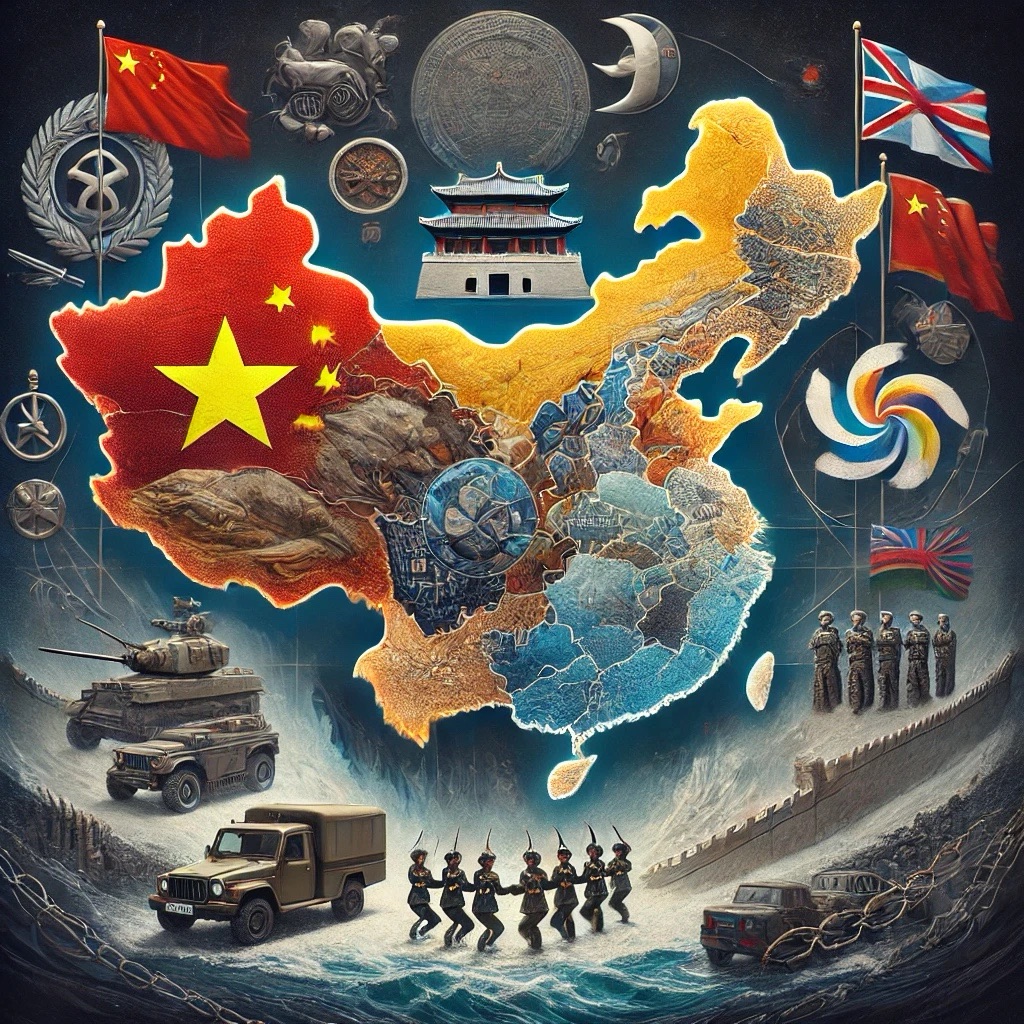"Splittism: China's Strategic Narrative on National Unity and Territorial Integrity"
 "Splittism" is a term that has been used in Chinese political discourse, particularly by the Chinese Communist Party (CCP), to refer to movements or ideologies that advocate for the separation or independence of regions from the People's Republic of China. This concept is closely associated with concerns over national unity and territorial integrity.
"Splittism" is a term that has been used in Chinese political discourse, particularly by the Chinese Communist Party (CCP), to refer to movements or ideologies that advocate for the separation or independence of regions from the People's Republic of China. This concept is closely associated with concerns over national unity and territorial integrity.
### Historical Context
The term "splittism" (分裂主义, **fēnliè zhǔyì**) has roots in the CCP's historical struggles to maintain control over China's vast and diverse territories. It was particularly prominent during periods of internal conflict, such as the Chinese Civil War, and later in the context of regional separatist movements. Historically, it has been used to label and condemn any efforts that are seen as threatening the unity of the Chinese state.
### Modern Usage
In contemporary China, "splittism" is often invoked in discussions related to Taiwan, Tibet, Xinjiang, and Hong Kong. These regions have unique cultural, religious, or political identities that have led to movements or sentiments seeking greater autonomy or outright independence from Beijing.
1. **Taiwan**: The most prominent example of "splittism" concerns Taiwan. The Chinese government considers Taiwan a breakaway province that must be reunified with the mainland, by force if necessary. Any pro-independence rhetoric from Taiwanese leaders is labeled as "splittism" by Beijing.
2. **Tibet**: Tibetan independence movements, particularly those led by the Dalai Lama and other exiled Tibetan leaders, are also branded as "splittism." The Chinese government has aggressively suppressed any such movements within Tibet and has sought to control the narrative around Tibetan identity.
3. **Xinjiang**: In Xinjiang, where the majority Uyghur Muslim population has a distinct cultural and religious identity, "splittism" is used to justify crackdowns on what Beijing describes as separatist or extremist elements. The Chinese government's actions in Xinjiang, including the establishment of re-education camps, are framed as efforts to combat "splittism."
4. **Hong Kong**: In Hong Kong, after the pro-democracy protests that began in 2019, the Chinese government has increasingly referred to "splittism" when condemning actions or rhetoric that challenge Beijing's control over the region. The imposition of the National Security Law in Hong Kong in 2020 is partly aimed at curbing any "splittist" tendencies.
### Implications of "Splittism"
The use of "splittism" as a political tool allows the Chinese government to justify strict measures, including military action, legal suppression, and censorship, against any form of dissent that it perceives as a threat to national unity. In the context of President Xi Jinping's leadership, the term is a signal of the CCP's resolve to maintain strict control over all regions of China and to prevent any perceived erosion of central authority.
When President Xi talks about "splittism" to members of the People's Liberation Army (PLA), it serves as a reminder of the military's role in safeguarding the territorial integrity of China. It is also a call to be vigilant against internal and external forces that could weaken or divide the country.
### Strategic Importance
The term "splittism" is more than just rhetoric; it reflects China's strategic priorities. By emphasizing the dangers of "splittism," Beijing not only seeks to reinforce its domestic control but also to send a message internationally that it will not tolerate any support for separatist movements within its borders. This can influence China's foreign policy, particularly in its relations with countries that have ties to regions like Taiwan, Tibet, or Xinjiang.
In conclusion, "splittism" is a key concept in understanding China's approach to national security, domestic governance, and foreign relations. It underscores the CCP's commitment to maintaining a unified and powerful state, and it is a central part of the narrative used to justify actions taken to preserve that unity.

Comments
Post a Comment